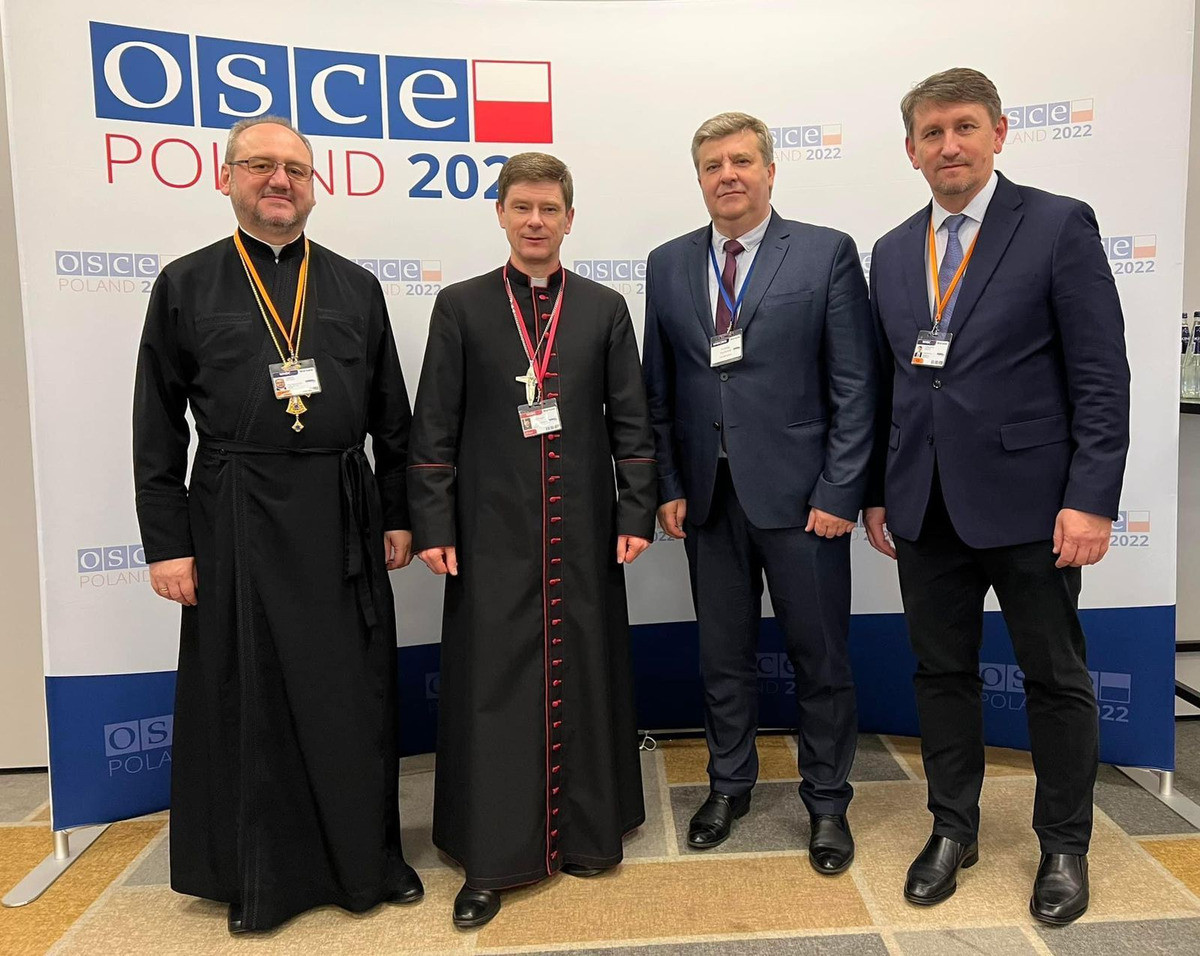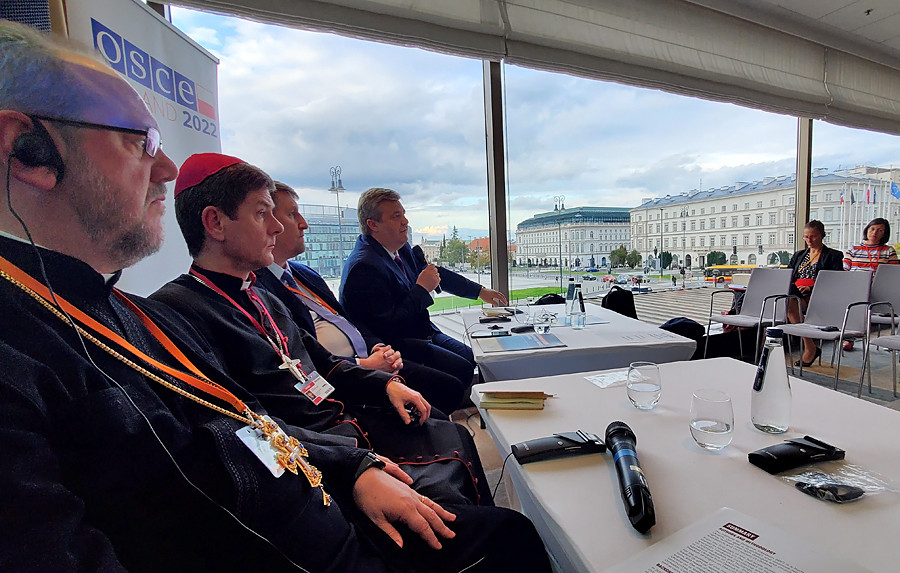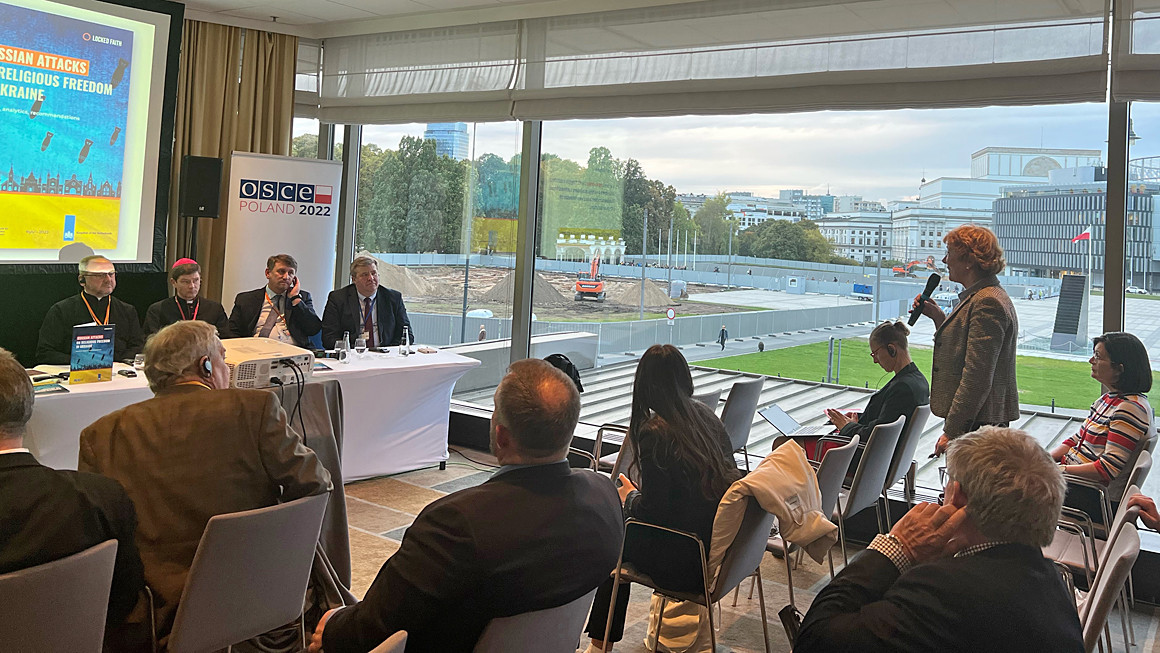A delegation of Ukrainian religious leaders and human rights defenders told diplomats from various OSCE member states about the attacks of Russian troops and occupation authorities on religious buildings, believers, and clergy.
A thematic event on this issue was held on September 28, 2022 on the sidelines of the Warsaw Human Dimension Conference, which this year was organized by the Polish OSCE Chairmanship. A separate discussion about Russian attacks on religious freedom in Ukraine was initiated by the Institute for Religious Freedom with the organizational support of the Center for Civil Liberties.
The present foreign diplomats, journalists, human rights defenders, and experts got acquainted with the results of a new report presented by the IRF chair.
As an example, bishop Vitalii Kryvytskyi cited the facts of shelling, deliberate property damage, looting, and vandalism, which Russian soldiers committed at the seminary of the Roman Catholic Church in Vorzel, Kyiv region.
He also noted that the situation in the occupied territories is changing rapidly. Even at the beginning of the war, in 2014, there was a case when, after some time of unhindered service, the Russian occupation authorities imprisoned a Catholic priest and repeatedly took him out for mock executions with a bag on his head, and later began to demand ransom for his release from captivity.

The Russian invasion was also a test for Christians of the Evangelical Protestant churches. On Sunday, September 11, 2022, Russian invaders seized the building of the "Grace" Church of Evangelical Christians in Melitopol, Zaporizhzhia region, confiscated property, and expelled pastor Mykhailo Brytsyn from the city.
He added that in recent months, many Protestant churches have turned into powerful humanitarian hubs that help save the lives of people in the occupied territories and in regions of active hostilities, as well as save from hunger and provide shelter to internally displaced persons from different regions of Ukraine.
Mitred Protoiereus of the Ukrainian Greek Catholic Church Fr. Oleksa Petrov stressed that the particularly brutal crimes of the Russian military and their conscious mockery of Christian shrines in Ukraine demonstrate natural degradation. According to the priest, in the territories occupied by Russia, there is an intentional repressive policy of a totalitarian regime that cannot tolerate religious freedom, despises fundamental human rights, and seeks to completely destroy the Ukrainian identity.

In order to respond to Russian war crimes against religious communities and minimize similar attacks on Ukrainian believers in the future, the Institute for Religious Freedom has prepared a number of practical recommendations. IRF Executive Director Maksym Vasin presented proposals prepared by the authors' team of the report "Russian attacks on religious freedom in Ukraine".
The thematic event ended with a series of questions and answers, during which Ukrainian religious figures and co-authors of the report shared their expert assessments of the events in Ukraine.
The Institute for Religious Freedom is implementing the Locked Faith Project with the support of the Embassy of the Kingdom of the Netherlands in Ukraine.
Photo: irs.in.ua
